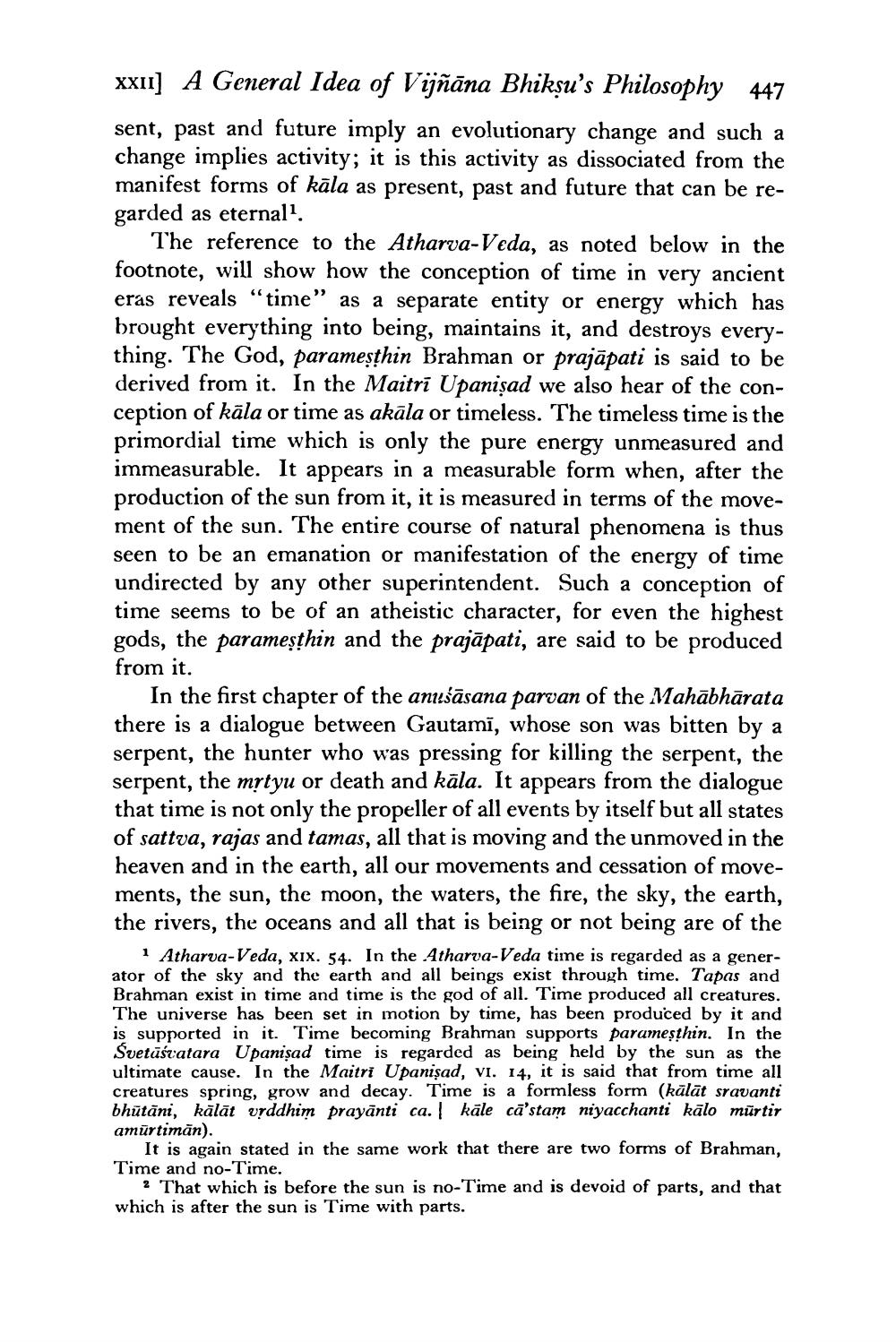________________
XXII] A General Idea of Vijñāna Bhikṣu's Philosophy 447 sent, past and future imply an evolutionary change and such a change implies activity; it is this activity as dissociated from the manifest forms of kāla as present, past and future that can be regarded as eternall.
The reference to the Atharva-Veda, as noted below in the footnote, will show how the conception of time in very ancient eras reveals "time" as a separate entity or energy which has brought everything into being, maintains it, and destroys everything. The God, parameşthin Brahman or prajāpati is said to be derived from it. In the Maitrī Upanişad we also hear of the conception of kāla or time as akāla or timeless. The timeless time is the primordial time which is only the pure energy unmeasured and immeasurable. It appears in a measurable form when, after the production of the sun from it, it is measured in terms of the movement of the sun. The entire course of natural phenomena is thus seen to be an emanation or manifestation of the energy of time undirected by any other superintendent. Such a conception of time seems to be of an atheistic character, for even the highest gods, the parameșthin and the prajāpati, are said to be produced from it.
In the first chapter of the anušāsana parvan of the Mahābhārata there is a dialogue between Gautamī, whose son was bitten by a serpent, the hunter who was pressing for killing the serpent, the serpent, the mytyu or death and kāla. It appears from the dialogue that time is not only the propeller of all events by itself but all states of sattva, rajas and tamas, all that is moving and the unmoved in the heaven and in the earth, all our movements and cessation of movements, the sun, the moon, the waters, the fire, the sky, the earth, the rivers, the oceans and all that is being or not being are of the
1 Atharva-Veda, xix. 54. In the Atharva-Veda time is regarded as a generator of the sky and the earth and all beings exist through time. Tapas and Brahman exist in time and time is the god of all. Time produced all creatures. The universe has been set in motion by time, has been produced by it and is supported in it. Time becoming Brahman supports parameşthin. In the Svetāśvatara Upanisad time is regarded as being held by the sun as the ultimate cause. In the Maitri Upanişad, vi. 14, it is said that from time all creatures spring, grow and decay. Time is a formless form (kālāt sravanti bhūtāni, kālāt viddhim prayānti ca. kāle că'stam niyacchanti kālo mūrtir amürtiman).
It is again stated in the same work that there are two forms of Brahman, Time and no-Time.
2 That which is before the sun is no-Time and is devoid of parts, and that which is after the sun is Time with parts.
he Maitri Upegarded as being parts paramesthinly it and




